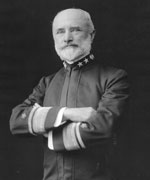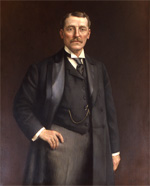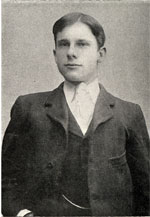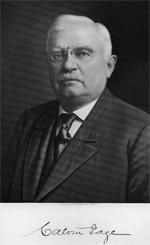 PEOPLE
PEOPLE

People, Part Five: Hosts—Portsmouth Naval Shipyard
Admiral Mead
Rear Admiral William Mead, commander of the shipyard, had the critical responsibility of hosting the negotiations, preparing the conference room, and insuring the correct protocols extended to both parties. With just four days notice, Mead organized some 200 workman who built the conference facilities in the general stores building. Mead was invited, along with the commanders of the Mayflower and the Dolphin, to witness the treaty signing.
Hosts—New Hampshire and Portsmouth
Overlooked in the analysis of the Russo-Japanese War and the resulting peace conference is the important role performed by the hosts in New Hampshire and Maine. For about thirty days, the local people of the small city and surrounding rural communities welcomed the delegations and the hundreds of reporters, government officials, and other visitors drawn to the event. The relaxed informal social atmosphere proved conducive to support the serious formal discussions behind the closed doors of the Portsmouth Naval Shipyard.
Governor John McLane
New Hampshire Governor John McLane invited the delegates to meet in New Hampshire, an offer accepted by Roosevelt and approved by Japan and Russia. Throughput the negotiations he participated in many social events for delegates and witnessed the signing of the treaty.
Mayor Marvin
Portsmouth Mayor William E. Marvin presided over a hospitable city and was rewarded with a place in the room when the treaty was signed.
Judge Page
Calvin Page, Portsmouth lawyer, judge, and mayor, was the trustee of the estate of Frank Jones, owner of the Hotel Wentworth where both delegations were housed free of charge.
Local People
Local people, although in awe of their visitors from such distant lands, remained respectful, allowing members of each delegation to stroll easily through the city and to visit outlying sites at Little Harbor and Manchester, and Eliot, Kittery, and York, Maine. At numerous events, the local hosts encouraged the delegates to continue their efforts for peace during the times when formal negotiations were delayed because the peace process was breaking down over apparently irreconcilable issues.




